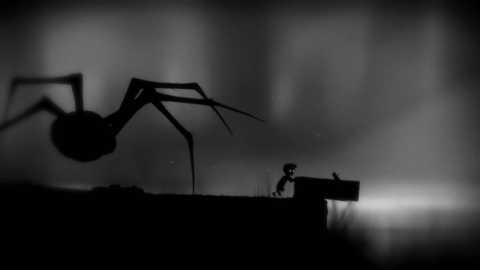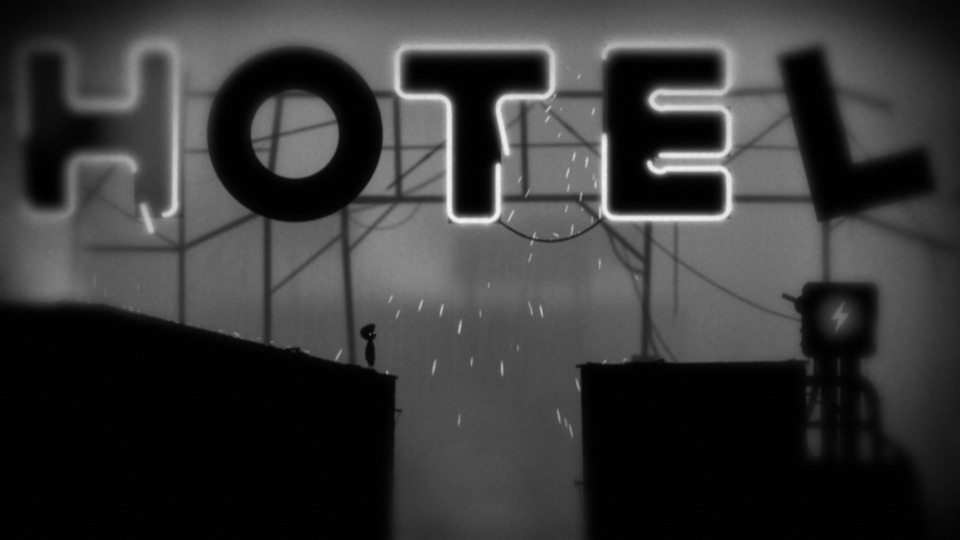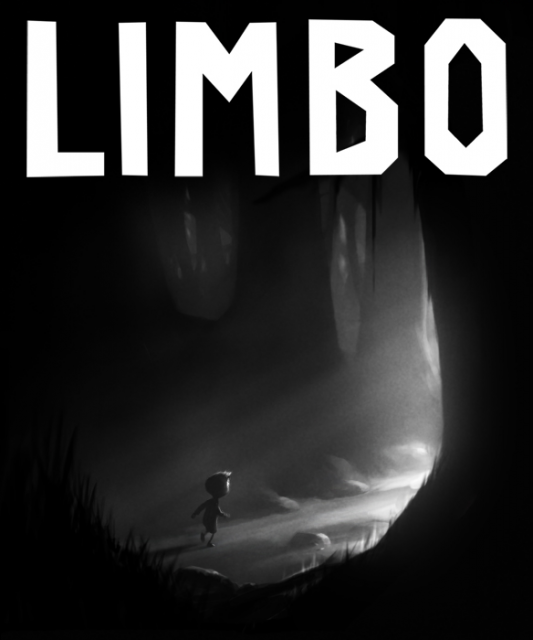I Wanna Be The Guy, But Now It's All Dark And Sad
I'm sure when it dropped in 2010, Limbo was an impressive piece of work. People were still high off the frankly amazing puzzle-platformer Braid that showed just what games could do, thematically and mechanically. People had tried (and, indeed, are still trying) to incorporate the mechanics of the game directly into the theme and purpose in a way that Braid somehow managed. We've come close, and Gone Home is one of the better examples, but my point is Braid was a real watershed moment that forever placed the puzzle-platformer as the go-to genre for "art games." We've grown tired of them now thanks to oversaturating the genre, but before we as a society began to collectively yawn at the prospect of a new puzzle-platformer inspired by Braid, Limbo launched a summer of Xbox Live Arcade Games. Part of what made Limbo stand out beyond the others may have been how it approached the genre--it wasn't inspired by Braid as much as sought to go in the exact opposite direction.

Whereas Braid has a lush, painterly, and beautiful style, Limbo went for something decidedly more grim; the only colors are pitch black and dark grey. Instead of pages upon pages of text detailing the lore of the game, the only word that really stood out in Limbo was "hotel," and that's because it was an obstacle. You see where I'm going? Sometimes I still listen to Braid's wonderfully adventurous and either vaguely traditional or synthetic Celtic soundtrack. The music for Limbo is mostly long atmospheric and plods along about as quickly as the player character can move--that is, frustratingly slow.
Limbo was something different--a unique, relatively crisp and clean flavor cutting through the almost saccharine taste Braid may have left in everyone's mouth. Something tells me this is vital to understanding how Limbo sold so much, because it's kind of an utter failure from a gameplay perspective.
It may have been unique at the time, but the harsh and brutal visuals don't quite hold up over time--in fact, I feel we were beginning to tire of the neo-noir, dark, gritty aesthetic by 2011 at most--and what Limbo tries to achieve has certainly been done better. If you enjoy silhouetted characters adding to a stark environment, that's all well and good. For my money, though, it says more about the laziness of the art team that there's so little detail to everything. I know it's comparing apples to oranges, but I was thinking of the 1985 Japanese film Tetsuo: The Iron Man the whole time as something that was strikingly composed, incredibly dark, but detailed as well. Maybe I'm wrong, but it very much felt like an Xbox Live Arcade game visually. It's not a bad thing, but not exactly praise-worthy.

The dealbreaker for Limbo, however, comes in the basic act of progressing through the game. Things like atmosphere, visuals, soundtrack, story, and setting all play a big part in how "good" a game is, but screwing up playing it--going from point A to point B--is the most important. It's like writing the world's greatest novel using the language and sentence structure of a 1st grader, or filming an epic, sprawling film on a Motorola Razr. Your art in the medium of choice could be revolutionary, but as long as the audience is frustrated then you'll never get your message across. Frustration is the key word here with Limbo.
You see, the vast majority of puzzles in Limbo are impossible to solve the first time through. There are hidden traps that you'll never see coming unless you're already familiar with the puzzles, or "enemies" that suddenly display new behavior. There are thankfully unlimited lives, but it's downright unforgivable that the most logical route for solving a puzzle is a near-endless cycle of "Try-Die-Respawn." No puzzle is ever solved because you worked out the solution, like in Portal. You only fall into the solution because you've died enough times to work out the answer. Some games incorporate death into the level design, like another indie hit, Super Meat Boy (which also dropped in 2010, surprisingly enough.) Super Meat Boy, thankfully, has a near-instant respawn; death is literally a slap on the wrist. Respawning in Limbo is a full-on punishment, making you see the same old tired death animation and waiting for the whole level to reload. Much like your movement speed and jumping, it's just sluggish enough to leave you frustrated and ready to quit. An easy way to frustrate the player is to make them die for something that isn't their fault. FromSoftware understands this, which is why I think Dark Souls is such a great game. Yes, you die a whole bunch, but it's always because you didn't understand the environment you were in, or made some kind of mistake. What you see is what you get in Dark Souls, unlike in Limbo. It's a sort of ball-busting difficulty made famous for being laughably impossible and frustrating in a certain Flash/Java freeware game.
Even though it's possibly one of the most famous indie games and should absolutely be recognized and applauded for the cultural impact and the atmosphere it's created, one shouldn't condone the sometimes unbearably miserable platforming and now-dated and lazy visuals. While it may be pretty to look at, Limbo just isn't a very good game.
